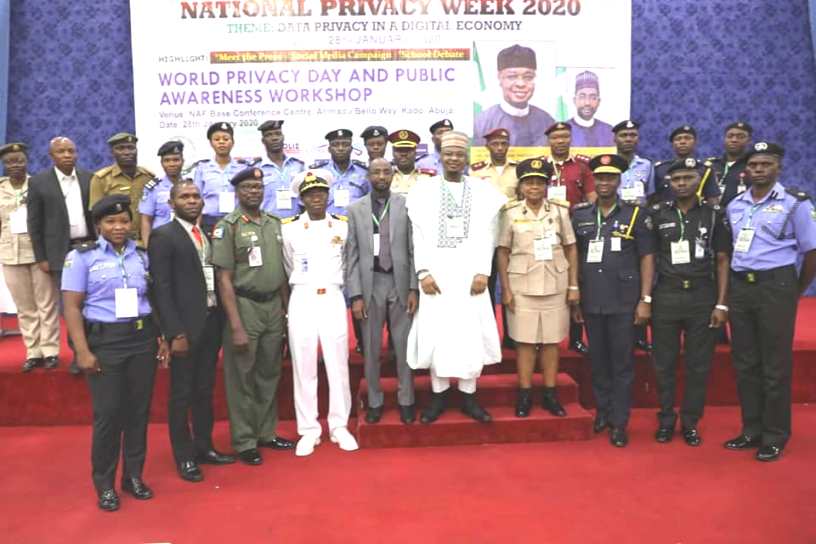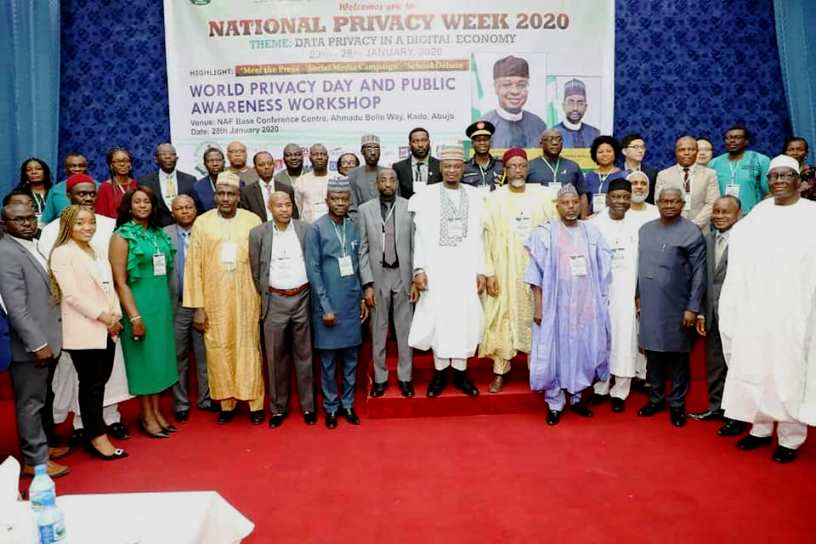By Abdul-Hakeem Ajijola
The Internet has reached a pivotal point, where some level of regulation is required to ensure the stability, integrity and survivability of the platform. However, there are fine lines between suitable legislation, regulation, censorship and abuse of digital rights.
That said, the fundamentals behind the failures and challenges of technology are often Human failings and frailties – greed, lies, incompetence, ego, but we must now add the new political aspects such as state funded cyber-actors, extremism and terrorist motivated hackers.
In addition, technology faces well known challenges like infrastructure deficit, costs, resistance to change – and we must there for understand the underlying issues of culture, education and circumstances so that we can appreciate our weakness and endeavour to fix them – these are issues our society, especially its national and corporate leadership must deal with to ensure short and long-term national, corporate competitive survivability and to secure citizens wellbeing and livelihoods.
Violations of privacy and privacy rights have been with us throughout human history and are severally addressed in both the Bible and Qur’an. For example:
- In “Sons of Noah, Genesis 9:20-27” invasion of privacy gets you cursed, and your whole family cursed, for generations to come.
- The Quran (49:12) rebukes those who wish to pry into matters which do not concern them, or harbour suspicions in respect of others, conceding that some suspicions can even be considered crimes.
Yet today technology has facilitated unprecedented violations of privacy and privacy rights with significant societal impact and damage. Sadly, this seems to be just the beginning and that may explain why NITDA opted to do something about it through the Nigeria Data Protection Regulation (NDPR). It should be noted that NDPR:
- Seeks to a) safeguard the rights of natural persons to data privacy; b) foster safe conduct for transactions involving the exchange of Personal Data; c) prevent manipulation of Personal Data; and d) ensure that Nigerian businesses remain competitive in international trade through the safe-guards afforded by a sound data protection regulation.
- NDPR envisages three critical groups whose capacities must be developed namely: a) Data Subjects (you and I) who are the ultimate “owners” of foundational data; b) data controllers like CBN, NIMC and FRSC who determines the purpose for which the data is being used; and c) data processors like enrolment organisations and Galaxy Backbone PLC who obtain, records or otherwise hold or transmits the information or data on behalf of the data controller There will be overlaps in some cases.
- NDPR uses an innovative model that leverages sector professionals to drive compliance instead of potentially heavy-handed direct government intervention – indeed this model can be applied in other regulatory areas.
Nigerians need to engage, through the Ministry of Communications and Digital Economy, in national conversations to outline a future National Digital Data Policy and related Data Legislation that understands where we are coming from, factors our circumstances and appreciates where we seek to go, while learning from earlier efforts to pass requisite legislation.

Due to the rapid on-going changes in the cyber space and related issues any legislation passed must focus on the appropriate empowerment of a proactive, agile and responsive regulator, existing or new, and not necessarily just on the specific challenges that we see now. For now, NITDA, by default, must ensure the deepening of our understanding of, and compliance with, extant regulations such as NDPR and international counterpart regulations like the European General Data Protection Regulation (GDPR) and California Consumer Privacy Act (CCPA).
“Today, technology has facilitated unprecedented violations of privacy and privacy rights with significant societal impact and damage. Sadly, this seems to be just the beginning and that may explain why NITDA opted to do something about it through the NDPR.”
Like most socio-economic challenges, addressing Data Privacy in a Digital Economy requires human resource capacity building. Nigeria must “overproduce”, in all technology sectors, the number of requisite experts that we need to cater to “evaporation” of experts from our shores. It is better for capable Nigerians to leave our shores who can secure dignified and well-paying jobs abroad, which will enhance our diaspora remittance inflow in the short term and lay the foundation for the return of experienced cybersecurity and related experts in the long run.
As the challenges of cyberspace, such as data privacy and related trust issues, escalate they impinge on the economic and digital stability and survival of the nation state and the wellbeing of its people. As we move forward, may I remind you that we must continually factor the future needs and aspirations of the underserved, unconnected and the unborn for a viable, stable, secure and just digital society – they must live with the precedents, norms and consequences of what we set today.
National and corporate leaders, as well as our citizens, must recognize and understand that everything has changed in the last few years and what may have worked yesterday to mitigate threats can no longer be relied upon today, and in the future, to secure national and corporate survivability. Strategic government and corporate decision makers need to start asking themselves:
1- What are we missing? 2- What are we not considering? And 3- What must we start implementing immediately? – Strategically managing our data resources must be one of our immediate national imperatives.
“Nigerians need to engage, through the Ministry of Communications and Digital Economy, in national conversations to outline a future National Digital Data Policy and related Data Legislation that understands where we are coming from”
A strategic mind set change from cyber-security focus to Cyber-Survivability prioritization is imperative. Our nation guided by the Ministry of Communications and Digital Economy must articulate Nigeria’s Cyberspace, Cybersecurity, Data Privacy and Digital Economic Philosophies, Ethics, Policies and Strategies.
Leaders who take ownership and responsibility for their stakeholders, and their own destiny, will find themselves acquiring a competitive advantage today, and bequeathing such advantages throughout the 21st century.
Our Digital Economy must convert problems and challenges into opportunities. In 2015 the Africa Cyber Security Market was in 2015 estimated to be $0.92 ($1) Billion and is now (2020) estimated to be $2.32 Billion, with some estimates as High as $4.5 billion. What percentage of that market can be ours/ yours? Imagine the jobs, wealth and taxes (IGR) that can be accrued. Let us together kick-start the development of a Nigeria Cybersecurity Economic sub sector employing thousands of knowledge workers, below 35 years of age, mentored by those of us that are older, who will profitably drive Cybersecurity and Trust solutions value chains to solve current and future problems. Let us view Cybersecurity, data privacy and related Trust activities as Profit Centres not Cost Centres. As we do so we protect the Digital Nigerian.
Let us appreciate the efforts of the Honourable Minster of Communications and Digital Economy Dr. Isa Ali Ibrahim (Pantami) and the Director General Of NITDA Malam Kashifu Inuwa and their teams, who have demonstrated leadership by encouraging stakeholders in considering and implementing the requisite foundational solutions to the nations data privacy and digital economy challenges.
I believe that together we will, God willing, build sustainable digital bridges of honour and dignity between 200 million Nigerians and with the rest of humanity, thereby making a positive difference for generations yet to come.

































